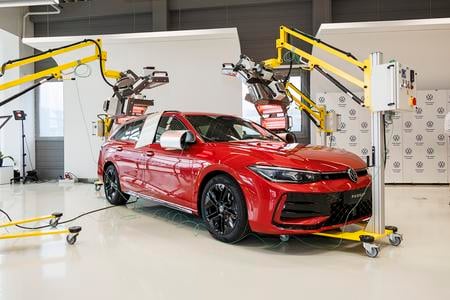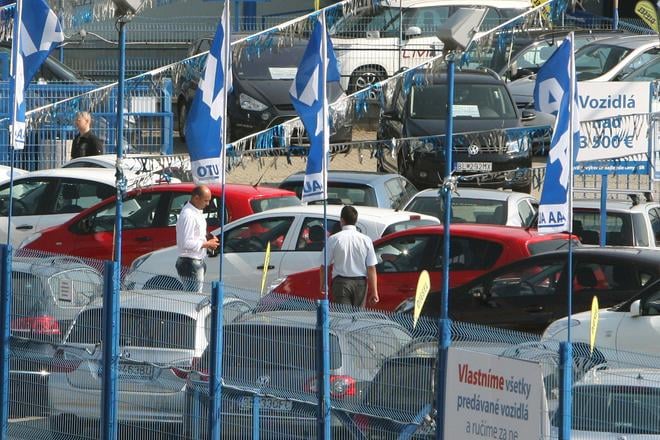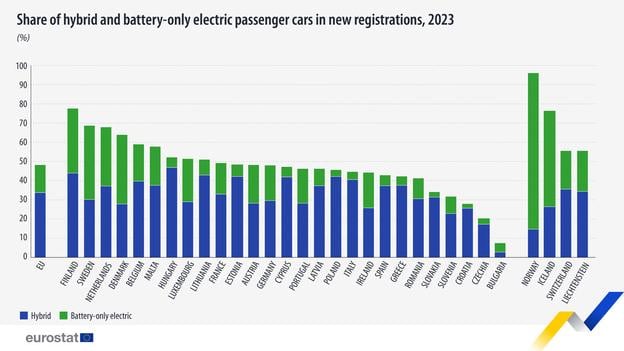The number of battery electric vehicles (BEVs), including passenger and small commercial vehicles, on Slovak roads hit a record 17,430 at the end of March. Since the beginning of the year, this marks an increase of 2,000 vehicles, according to the Slovak Electric Vehicle Association (SEVA).
“As expected, the number of newly registered electric vehicles continues to grow, a positive signal for the ongoing transformation of the transport sector,” said Patrik Križanský, director of SEVA, as cited in a press release.
However, market dynamics reveal a paradox: most of the growth continues to be driven by individual imports of used or new vehicles from abroad rather than by sales through official dealerships in Slovakia. Of the 2,000 newly registered electric vehicles, only 830 were purchased through official sellers.
This trend is unusual in the broader European context, where sales via official channels typically dominate.
“Even in 2025, we see the paradoxical trend where imports continue to outpace new vehicle sales through official dealerships in Slovakia’s young electric vehicle market,” explained SEVA analyst Martin Jelínek.
Registration statistics indicate a breakthrough in Slovak consumers’ perception of electromobility, despite the lack of a long-term support or subsidy programme.

Tesla and Škoda lead the market
Tesla recorded the most battery electric vehicle registrations in Slovakia during the first quarter of 2025, with 471 new registrations.
“Tesla maintains a strong position in Slovakia despite turbulence in other European markets – and despite having no official representation here,” said Jelínek.
Slovakia has long stood apart from its neighbours — Poland, the Czech Republic, Hungary and Austria — as the only market where Tesla has never formally operated. That distinction now appears set to end, reports the Hospodárske noviny daily. The electric car manufacturer has recently registered a new entity, Tesla Slovakia s.r.o., with its headquarters in central Bratislava. The development was among the first reported by Radovan Skokan, known as @slovakevguy on the social media platforms X and Instagram.
The arrival of Tesla’s official presence would mark a significant shift for Slovak owners, who until now have had to travel abroad for authorised servicing — often to neighbouring countries. The plans reportedly also include a showroom and direct sales of new vehicles, which would significantly shorten delivery times. However, the timeline for the launch remains unclear and could still be several months away.
Meanwhile, Škoda performed strongly in the official sales segment, doubling its number of battery electric vehicles sold compared to the same period last year.
“Škoda significantly strengthened its year-on-year EV sales, thanks to an expanded lineup of more affordable models,” Jelínek added.
E-car popularity rising, but lagging behind EU
In March 2025, battery electric vehicles accounted for a record 4.7 percent share of all new car registrations in Slovakia. However, this remains well below the European Union average of 15.3 percent for the same period.
“Despite the positive trend, Slovakia remains among the weakest countries in Europe in terms of new battery electric vehicle sales,” said Križanský.

SEVA forecasts that 2025 could be a crucial year for further growth in Slovakia’s electromobility sector. Automakers have launched or are preparing to launch several new electric models priced between €20,000 and €30,000, which should make EVs more accessible to both private buyers and corporate fleets. The continuing decline in battery prices and growing pressure from regulators to cut vehicle emissions under new standards are also expected to drive the market forward.
“Affordability and a wider choice of models will be key to accelerating EV sales,” said Križanský. “Based on current developments, we expect Slovakia to cross the 20,000 registered EVs milestone within the next few months.”


 The market dynamics in Slovakia reveal a paradox. (source: Ján Krošlák)
The market dynamics in Slovakia reveal a paradox. (source: Ján Krošlák)
 (source: Eurostat)
(source: Eurostat)